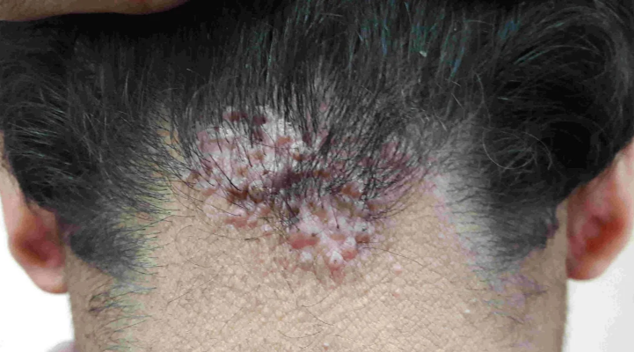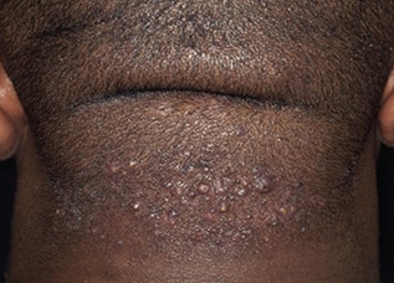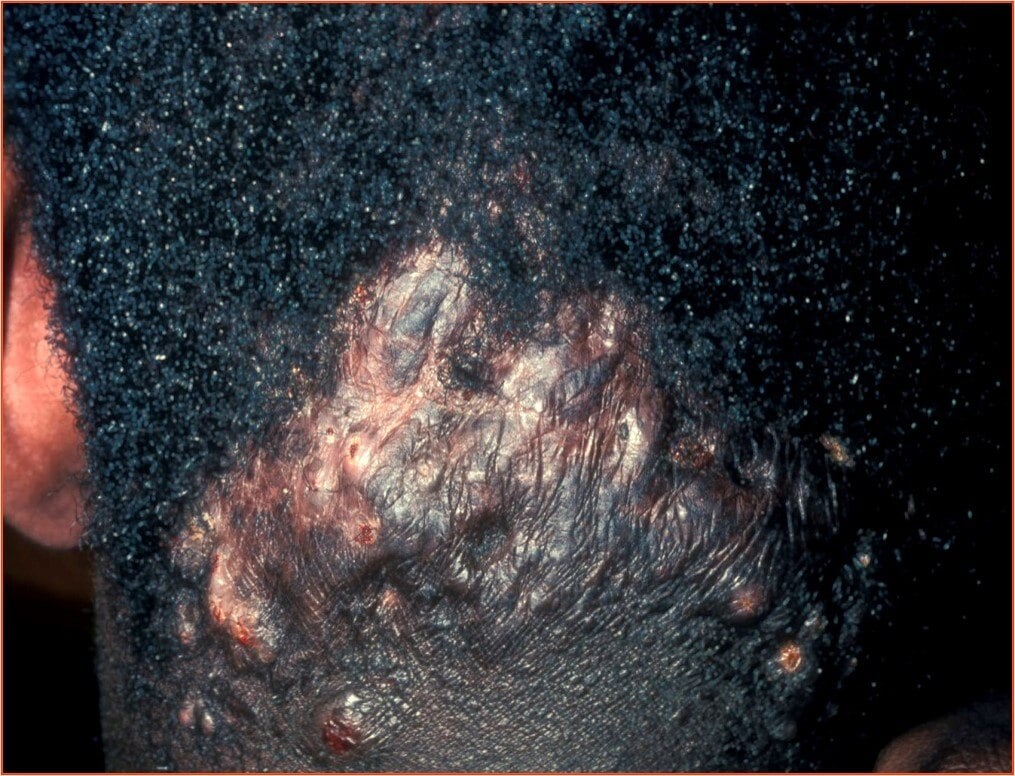Folliculitis Keloidalis

What is Folliculitis Keloidalis (Acne Keloidalis Nuchae)?
Folliculitis Keloidalis, also known as Acne Keloidalis Nuchae (AKN), is a chronic inflammatory condition that primarily affects the hair follicles on the nape of the neck and the occipital scalp. AKN predominantly affects men, particularly those of African descent. It typically manifests after puberty and is less common in women.
Symptoms & Causes

AKN is characterized by the development of small, itchy, and sometimes painful papules and pustules around hair follicles. Over time, these lesions can coalesce into larger keloid-like nodules and plaques, leading to scarring and permanent hair loss in the affected areas.
Patients with AKN often experience itching, tenderness, and sometimes pain in the affected areas. The condition can also lead to significant cosmetic concerns due to the appearance of keloid-like scars.
The exact cause of AKN is not well understood, but it is believed to be related to chronic irritation and inflammation of the hair follicles. Factors such as tight clothing, frequent shaving, and short haircuts may contribute to the condition.
Diagnosis & Treatments

Diagnosis is usually clinical, based on the characteristic appearance of the lesions and their typical location. A skin biopsy may be performed to confirm the diagnosis and rule out other conditions.
Management of AKN includes avoiding triggers that exacerbate the condition, such as tight collars and frequent shaving. Medical treatments may include topical and intralesional corticosteroids to reduce inflammation, antibiotics to treat secondary infections, and retinoids to normalize follicular keratinization. In severe cases, surgical excision of keloid-like lesions may be considered.
AKN is a chronic condition that can be challenging to manage. Early and consistent treatment can help control symptoms and prevent progression, but some degree of scarring is often inevitable.
Due to its chronic nature and potential for significant scarring, individuals with AKN often require ongoing dermatological care to manage the condition effectively.
